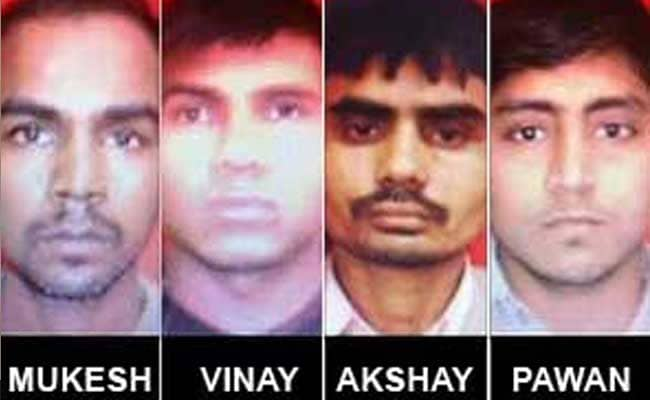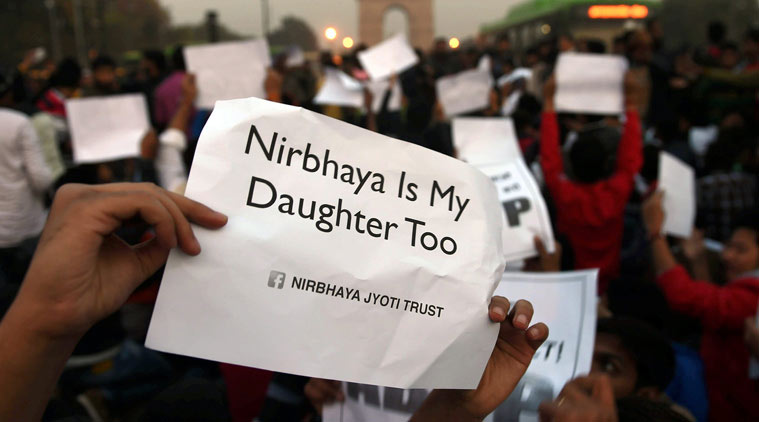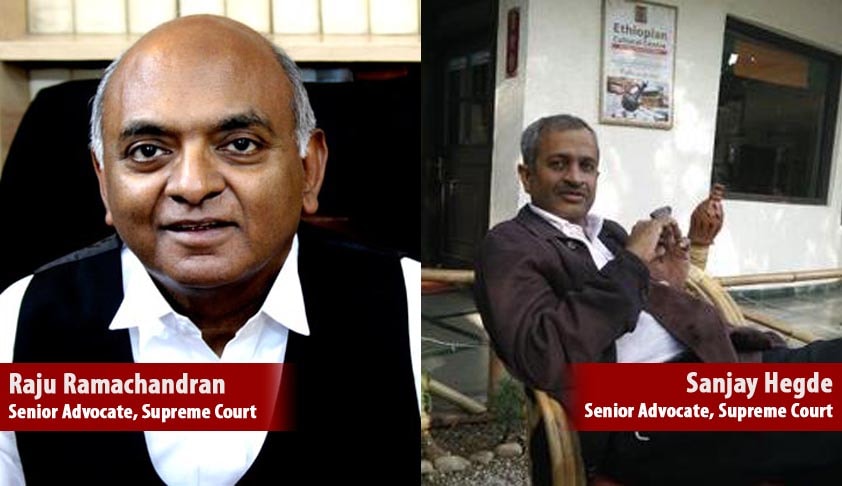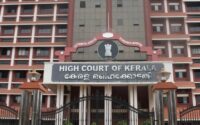Breaking News: SC upholds death sentence for Nirbhaya case convicts
HIGHLIGHTS
THREE JUDGES BENCH DELIVERED THE JUDGEMENT
DELHI HIGH COURT HAVE UPHELD DEATH SENTENCE FOR THE CONVICTS BY TRIAL COURT
REVIEW PETITION, PRESIDENTIAL PARDON- LAST OPTION AVAILABLE
A bench comprising Justices Diapk Misra, R Banumathi and Ashok Bhushan delivered the judgement Today in the case that had shaken the entire nation’s conscience.
Nearly five years after a 23-year-old medical student on her way home from a movie was fatally gang-raped and tortured on a moving bus in Delhi, the Supreme Court decided that four convicts should be sentenced to death and they don’t deserve mercy. A trial court had ruled in 2013 that they should be hanged and the High Court confirmed the sentence. But the four – Akshay Thakur, Vinay Sharma, Pawan Gupta and Mukesh – challenged it in the Supreme Court.

The Delhi gang-rape case convicts had appealed before the Supreme Court against their death sentence. On December 16 2012, the young woman and her friend boarded a bus in south Delhi, assured by the driver that they would be dropped off at their destination. The two were then attacked and the woman was gang-raped by six men, brutalized with an iron rod and her intestines were pulled out. She died in a Singapore hospital 13 days later.
“These men should be hanged. There is no crime more barbaric than this….I’m certain about that,” said the father of the woman, who came to be known as “Nirbhaya”. Ram Singh, the bus driver, was found hanging in his cell in Tihar jail in March 2013, months before they were convicted. Last August, Vinay Sharma had also allegedly tried to commit suicide. The sixth convict was just months short of 18 when he participated in the horrific crime.
He walked out of a correction home in December 2015 after spending three years – the maximum punishment for minors – sparking public outrage and an overhaul of the juvenile law. Now, a juvenile between 16 and 18 years can be treated as an adult if they commit a heinous crime.

The apex court had, on March 27, reserved its verdict on the appeal of four convicts — Mukesh, Pawan, Vinay Sharma and Akshay Kumar Singh — against the conviction and death penalty awarded to them by the high court on March 13, 2014. The 23-year-old paramedic was brutally assaulted and raped by six persons in a moving bus in south Delhi and thrown out of the vehicle with her male friend on the night of December 16, 2012. She had died in a Singapore hospital on December 29 the same year.
Besides dealing with the conviction, the apex court was also deliberating on the issue of quantum of sentence to the convicts as it has been alleged that the trial court did not separately consider “mitigating” circumstances of each convict while sending them to the gallows. While the Delhi Police had sought capital punishment for the convicts, the defence counsel had said they deserved leniency considering their poor family background and young age. The police had told the bench that the horrific crime committed by these men warranted death penalty and the test of being a “rarest of rare” case was satisfied in this matter and the court should also consider the effect of crime committed by them on the victim and the society at large.
Senior advocate Sanjay Hegde, who has assisted the court as an amicus curiae, had told the bench that there was no doubt that the crime committed was of “immense proportion” but as the evidence was not concrete, it does not warrant death penalty.Senior counsel Raju Ramachandran, also an amicus curiae, had said that option of awarding jail term for the whole life to these convicts may also be considered.
The convicts have approached the Supreme Court against the high court’s order which had confirmed the death penalty awarded to them by the trial court. During the hearing, advocates A P Singh and M L Sharma, representing the four convicts, had said they should be given a chance to reform and considering the mitigating factors, the court should not award them death penalty. They also raised questions about the evidence collected by the police in the matter.

On February 3, the apex court bench had prima facie agreed with the contention of Ramachandran that the provision of the Code of Criminal Procedure (CrPC), relating to sentencing of convicts, has not been followed in letter and spirit by the trial court. It was submitted that section 235 of the CrPC provides that an accused, in the event of conviction, would be heard on the question of sentencing individually, before the trial judge passes the order awarding punishment. The bench had then mulled ways to rectify the apparent error and said there are two modes — either the case be remanded back to the trial court to pass a fresh order on the sentence or the apex court itself hears this aspect of the matter afresh.
The trial court had awarded death penalty to the four convicts. Prime accused Ram Singh had allegedly committed suicide in his cell in Tihar jail in March 2013 and proceedings against him were abated. The high court, in its verdict, had observed that their offence fell in the rarest of the rare category and had upheld the death sentence awarded to them by the trial court.
With Inputs from
NDTV
Times Of India


